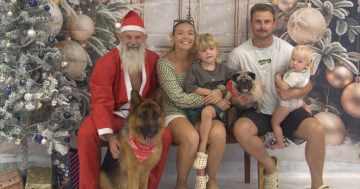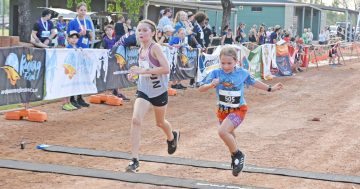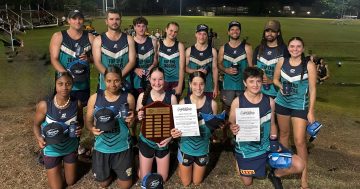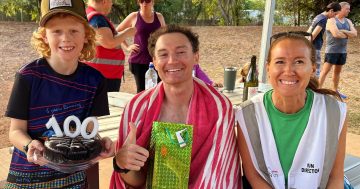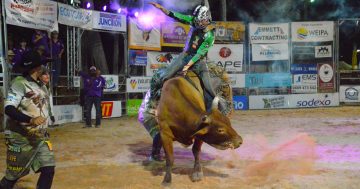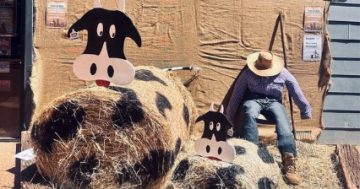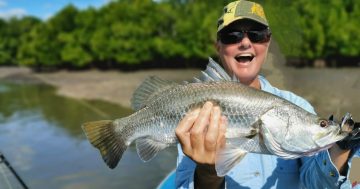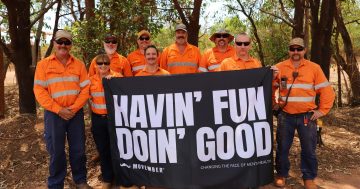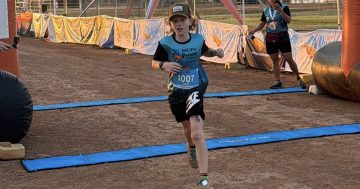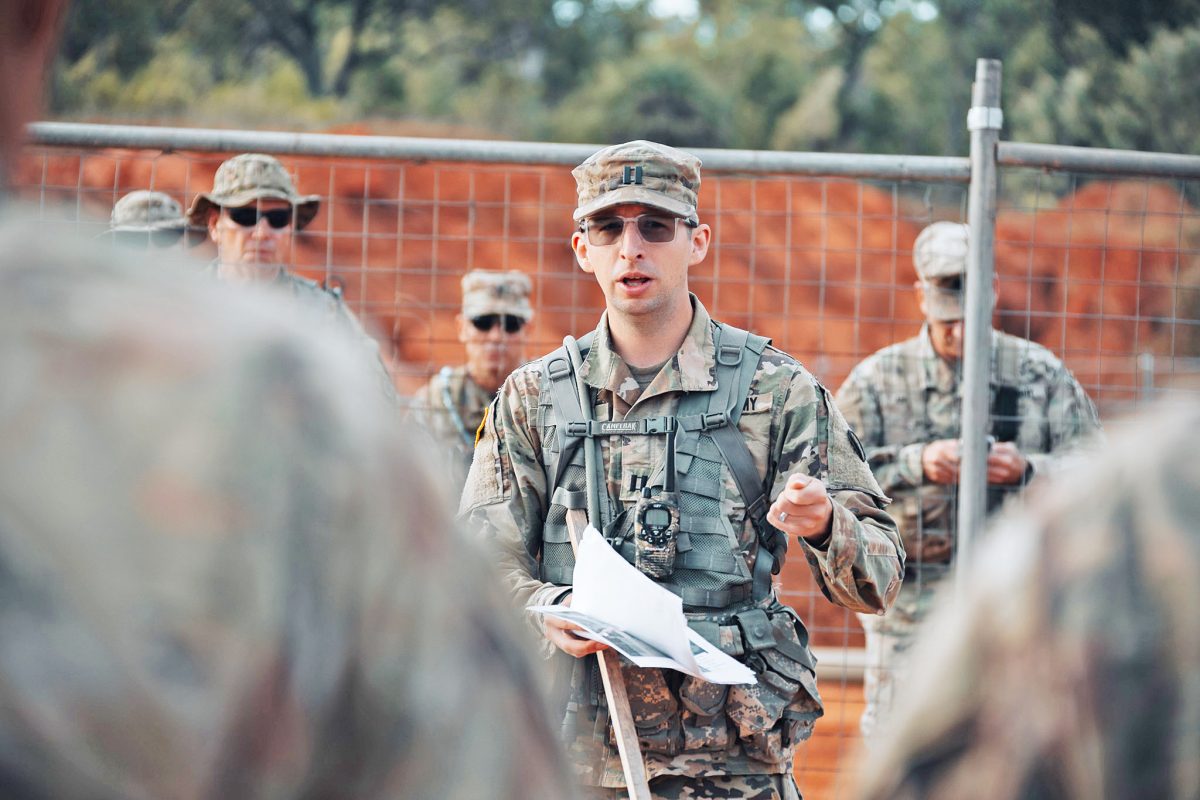
Captain Clovis Vaughn, operations officer, 475th Quartermaster Group, leads a briefing ahead of the exercise.
THE man who coordinated most of Saturday’s mission around Weipa and Napranum was not a full-time soldier.
Like many of the Americans on the ground, Captain Clovis Vaughn is in the US Army Reserve.
He’s part of the 475th Quartermaster Group, which is based out of Farrell in Pennsylvania, about an hour north of Pittsburgh.
That’s a five-hour drive for Captain Vaughn, who lives in Alexandra, Virginia, working as a project manager for a software company.
“It’s much like your Reserve counterparts here in Australia; it’s about one weekend a month and a couple of weeks over the summer for our annual training mission,” he said.
“Sometimes we get to do cool stuff like this where we are here for much longer periods of time.”
Asked to elaborate further on his definition of ‘cool’ when most of the exercise involved laying kilometres of pipeline in the Cape York heat, Captain Vaughn explained: “It’s putting a lot of our practical knowledge to use in a real-world scenario.
“We’ve done a lot of training at schoolhouses, but to actually put this together for the first time ever in a situation like this – yeah, it is really cool.”
Captain Vaughn said he found out he was making the trip to Australia in February.
But the mission itself had been planned well in advance.
“As far as like, doctorally, and understanding this whole concept of pipelines, I’ve been doing work like this since 2019,” he said.
“But as far as this particular mission set, really it was August last year when we first heard about this and then they started identifying who’s going to be going. But it wasn’t until February that they said ‘you’re definitely going’ and that’s when I really prepared.”
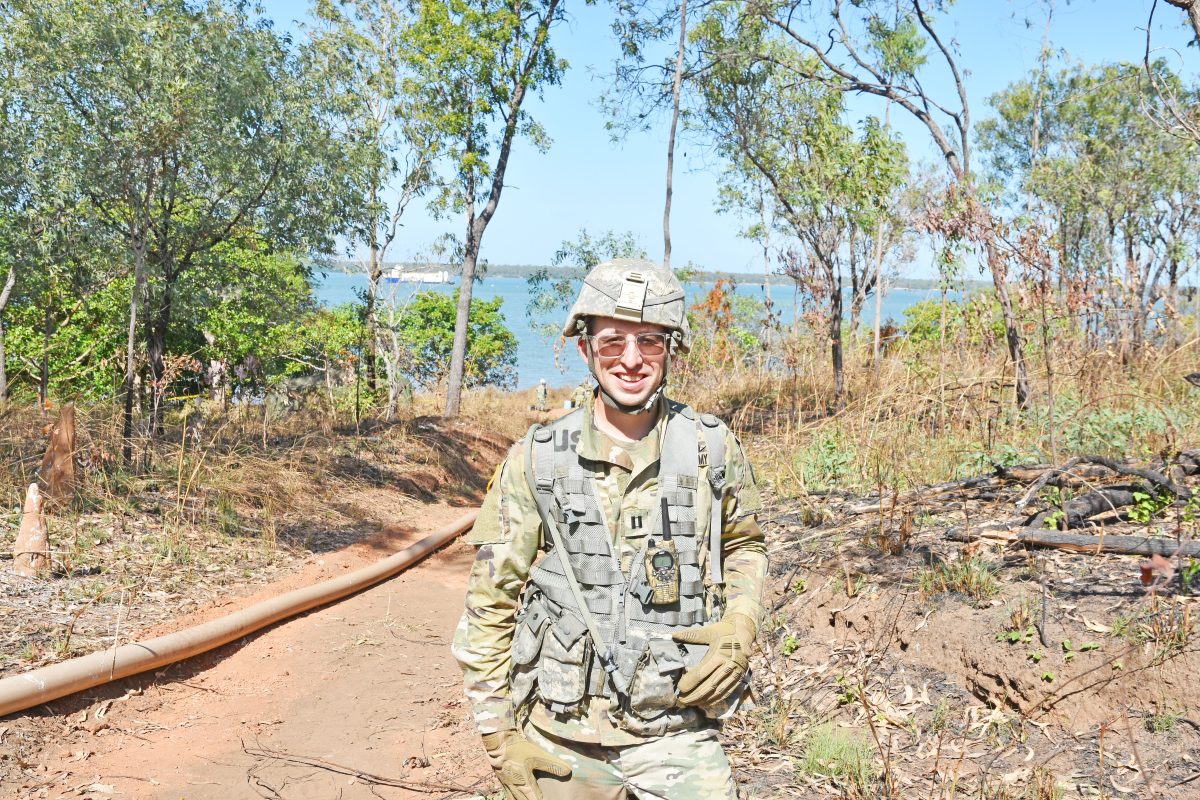
Captain Clovis Vaughn says he’s loving his time in Australia and Cape York.
Getting the time off work was another hurdle, although Captain Vaughn praised his employer.
“I’m a project manager for a software company that designs control systems for the energy grid, so wind turbines, gas turbines, solar panels and all that,” he said.
“It was definitely a shock when I first told them (how long I needed off) because, initially, the plan was to only be out here for two weeks.
“Then we heard it was going to take two or three days to get out here and then two or three days to get home and that’s basically a week gone.
“So I told them it was going to be 29 days and they were OK.
“Frankly, they are probably the most supportive employer I have had. They were like ‘We’ve got it, we have a transition plan in place. You go do what you’ve got to do’.
“So it made this trip easier.”
And as for his impressions of Australia and Cape York: “In my head, I had an idea of the outback and kangaroos jumping around. There are a lot more trees than I expected.”


